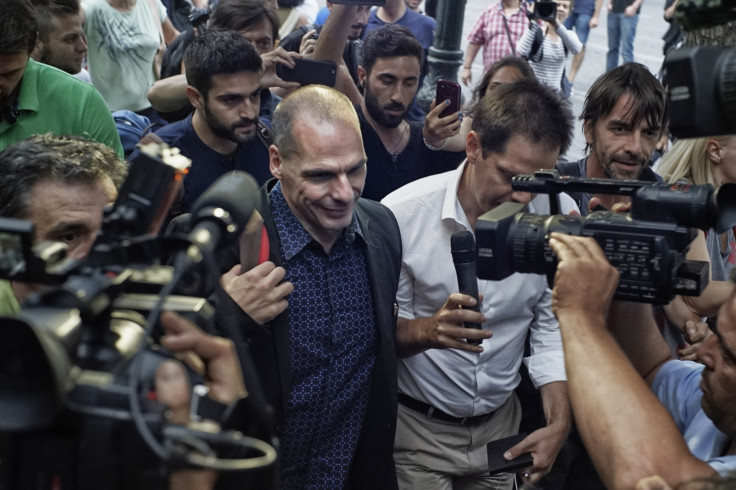Greek debt Crisis: Eurozone snubs Greek plea for bailout extension - Athens now in default

A last-minute bid by Greece to extend its bailout programme has fallen on deaf ears as it creditors rejected Athens' call to restructure debt.
Greece had requested the extension after saying it neither could nor would repay a €1.6bn (£1.1bn) loan to the International Monetary Fund (IMF) due on 30 June. In effect, this means that Greece no longer has a financial safety net because €240bn of bailout funding has ended with no new arrangement in place.
The IMF confirmed that Greece had failed to make the €1.6bn payment and was, therefore, "in arrears" with its debt.
"I confirm that the repayment due by Greece to the IMF has not been received," an IMF spokesman said. "We have informed our executive board that Greece is now in arrears and can only receive IMF financing once the arrears are cleared."
Greek Finance Minister Yanis Varoufakis had asked other eurozone countries for new aid and had offered to scrap a 5 July referendum on whether Greece should accept a cash-for-reforms deal proposed by the creditors – the IMF, the European Central Bank and the European Commission.
I confirm that the repayment due by Greece to the IMF has not been received. We have informed our executive board that Greece is now in arrears and can only receive IMF financing once the arrears are cleared.
The Eurogroup – the finance ministers of the eurozone – rejected the plea, but agreed they would discuss it further on 1 or 2 July.
German Chancellor Angela Merkel ruled out new negotiations with Greece.
"This evening at exactly midnight Central European Time the programme expires. And I am not aware of any real indications of anything else," she told German MPs. "Before a referendum, as planned, is carried out, we won't negotiate on anything new at all."
The chairman of the Eurogroup, Dutch finance minister Jeroen Dijsselbloem, said the last-minute plea had fallen on deaf ears. "We're beyond that point, it comes too late," he told Reuters.
He said that as a member of the eurozone and European Union, Greece was welcome to request a new assistance programme. However, there would be strings attached.
"That is quite a procedure to go through," he said. "In the meantime the situation in Greece, the economy, the Greek banks, has deteriorated, unfortunately even more, so that's a difficult path to consider."
Dijsselbloem went further saying that no new deal could be agreed until after Greeks had voted in their referendum - which he described as "a domestic political matter". Playing hardball, the Dutch finance minister said the Greek government's attitude had also to change.
"The only thing we can do is wait for the outcome and then to see whether there is grounds to continue helping Greece, and in what way," he said.
"What can change is the political stance of the Greek government that has led to this unfortunate situation," he said.
Dijsselbloem said it was not certain that a Greek default would necessarily lead to an exit from the euro zone.
"I think there are many options, but it would require a positive stance from the Greek government," he said.
© Copyright IBTimes 2024. All rights reserved.





